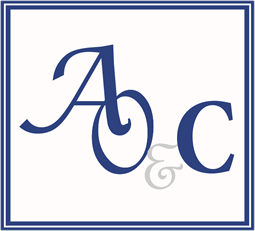Introduction
Finance is a fundamental requirement for the operation of any business. Consequently, companies can borrow funds for the purpose of carrying on their business objectives[1]. In corporate finance, debentures are a medium- to long-term debt instrument used by large companies to raise funds without diluting ownership[2]. The term ‘debenture’ originally referred to a document that either creates or acknowledges a debt[3]. In some jurisdictions, the term is used interchangeably with bond, loan stock, or note[4]. Unlike equity shareholders, debenture holders hold the status of creditors, primarily entitled to repayment of principal and interest, often secured over the company’s assets[5].
This article seeks to examine the Legal nature and enforcement of debentures as a tool for corporate financing.
Definition of a Debenture
CAMA 2020 is the principal legislation regulating this area in Nigeria. Under section 868, a debenture is defined as a written acknowledgment of indebtedness by a company, setting out the terms and conditions of the debt, and includes debenture stock, bonds, and any other securities of a company, whether constituting a charge on the assets of the company or not[6]. A debenture also consists of a debt owed by a company to another, secured by a deed which prescribes the conditions for the realisation of the debt[7]. A company may borrow money for its business or objects and may mortgage or charge its undertaking, property, and uncalled capital, or any part thereof, and issue debentures, debenture stock, and other securities, whether outright or as security for any debt, liability, or obligation of the company or any third party[8].
Debenture Trust Deed
Every company that offers debentures to the public for subscription or purchase shall, before issuing any of the debentures, execute a debenture trust deed in respect of those debentures and procure the execution of the deed by the trustee for the debenture holders appointed by the deed[9]. A debenture trust deed is defined as a legally binding instrument executed between a company and a trustee for the benefit of the debenture holders[10]. It is designed to safeguard the rights and interests of debenture holders, who are creditors lending funds to the company in exchange for a fixed return or interest. It ensures transparency, security for repayment, and establishes legal oversight in the administration and enforcement of the debenture[11].
Legal Nature and Realisation of Debenture Holder’s Security
Debentures often serve as a contractual obligation between a company and its creditors and often include a charge over the assets of the company as security for indebtedness. A charge over a company’s assets may be created in two forms: by way of a fixed charge and a floating charge. A fixed charge is created over a specific or identifiable asset of a company, while a floating charge is created over the whole or a class of the company’s assets[12]. A fixed charge restricts the chargor from dealing with the charged asset without the consent of the chargee. Conversely, a floating charge permits the chargor to deal with the charged assets in the ordinary course of business until it crystallises as fixed charge[13]. This is triggered upon the occurrence of certain events.
A debenture holder is entitled to realise his security upon the happening of any of the following:
- The company goes into liquidation, the company fails to pay any instalment or interest under the debenture or the debenture trust deed, the company fails to perform or observe any of the obligations imposed upon it by the debenture or the debenture trust deed, the company ceases to carry on its business, the company suffer losses or a diminution in the value of its assets, or the company wounds up.[14]
Upon the happening of any of the above events, the debenture holder or the court can enforce the chargee’s security by appointing a receiver/manager under the powers granted in the debenture trust deed. Once appointed, the assets that were previously available to the company are transferred to the control of the receiver/manager. As a result, the company loses the right to deal with those assets[15].
The Receiver is deemed in law to act as the agent of the company in relation to the assets under receivership[16]. Although a receiver/manager is appointed, he is nevertheless deemed in law to owe a fiduciary duty to the company[17]. The appointment of a receiver does not vest in him the legal estate in the company’s assets; rather, it confers upon him the right to take possession and control of such assets[18]. Most importantly, the appointment of a receiver does not extinguish the company’s legal personality or its title to the assets. Rather, the company’s right to manage and deal with the assets is merely suspended for the duration of the receivership[19].
Types of Debentures
Debentures may be classified under different categories, depending on the nature of rights and obligations they confer. The basis of such classification includes the terms and time of redemption, the existence or absence of security, and their convertibility or non-convertibility. Accordingly, debentures may be grouped as follows:
- Perpetual Debentures: This is a type of debenture that is made irredeemable or redeemable only upon the happening of a contingency or on the expiration of a period, however long. These debentures are riskier than others as they do not offer a return of principal[20].
- Convertible Debentures: This is a type of debenture that is issued with the understanding that, instead of the debt being redeemed or repaid, it may be converted into equity shares at the option of the debenture holder or the company, upon such terms stated in the debentures[21].
- Secured Debentures: Debentures may be either secured or unsecured. A secured debenture is one supported by a charge over the company’s assets, which may take the form of a fixed charge on specific properties of the company or a floating charge over the whole, or a defined portion, of its undertaking and assets. A charge securing debentures shall become enforceable on the occurrence of specified events in the debentures or the debentures deed[22].
- Unsecured debentures: This type of debenture is unsecured in the sense that if the principal or interest is not paid, the debenture holder will be forced to join other unsecured lenders and will be unable to sell any property or other assets to realise his security, meaning that
this type of debenture does not create any charge over the company’s property and merely constitutes a contractual obligation to repay the debt[23]. - Redeemable Debentures: Redeemable debentures are those issued with a specified maturity date upon which the principal sum becomes due for repayment to the debenture holders. This category of debenture expressly stipulates the terms and timeline within which the company is obligated to repay the debt in full[24].
Characteristics of Debentures
There are several characteristics of debentures, and they are outlined as follows:
- There is an undertaking by the company to repay debenture holders the principal amount along with the interest at the stipulated time, or as contained in the debenture deed.
- It is issued by the borrowing company and is in the form of a certificate of indebtedness.
- Debenture holders cannot claim the privilege to vote in any meeting of the company.
- When the company is winding up, the priority of the company is to repay the debenture holders; thus, there is no risk involved of loss of money by the debenture holders.
- It generally creates a charge on the assets of the company. Debenture holders are creditors of the company and have no claim to or ownership of the company, unlike shareholders.
- They are registrable instruments.
- The debenture holders are not the owners of the company; they are not entitled to the administration and management of the company.
Rights and Remedies of Debenture Holders
- Enforcement of Security: In the case of secured debentures, the debenture holder is entitled to enforce the security interest created in their favour to realise the outstanding debt.
- Legal Action: Debenture holders may institute legal proceedings against the company to recover sums due under the debenture. This may take the form of an action in court or, where provided, the initiation of arbitration proceedings.
- Winding Up Proceedings: If the company is unable to discharge its debts, debenture holders may petition the court for a winding-up order. Upon liquidation, the company’s assets are realised, and debenture holders are paid in accordance with their priority rights.
- Appointment of a Receiver: Where a debenture is secured by the company’s assets, the debenture holder may exercise the right to appoint a receiver/manager to take possession and control of those assets and manage them for the benefit of the debenture holder.
- Conversion of Debentures: In respect of convertible debentures, holders may exercise the option to convert their debentures into equity shares of the company, thereby providing an alternative avenue for the recovery or preservation of their investment[25].
Fixed and Floating Charges
Security interest may be created over a company’s assets by way of a pledge, charge, mortgage, or an assignment. The nature of the security interest created is also determined by the objective the lender seeks to achieve. For instance, where the lender intends for the borrower to deal with the assets in the ordinary course of business, the lender would create a floating charge rather than a fixed charge over the said assets[26]. For any fixed charge created over a specific asset of the company, the company is not allowed to deal with those assets without the consent of the lender[27].
Priority of Fixed over Floating Charges
A fixed charge on any property shall have priority over a floating charge affecting that property, unless the terms on which the floating charge was granted prohibit the company from granting any later charge having priority over the floating charge and the person in whose favour such later charge was granted had notice of that prohibition at the time when the charge was granted to him. Provided that a person is deemed to have notice of such prohibition in a floating charge where a notice indicating the existence of such prohibition is registered with the Commission[28].
Differences between Fixed and Floating Charges
The provisions of CAMA 2020 outline the various distinctions between a fixed and floating charge; they are as follows:
- A fixed charge is created over a specific or identifiable asset of a company, whereas a floating charge is created over the entire or a specific part of the company’s undertakings and assets, including cash and uncalled capital of the company, both present and future[29].
- A fixed charge on an asset cannot be sold or disposed of without the lender’s or debenture holder’s authorisation, whereas floating charges can be changed until they are crystallised as fixed.
- Fixed charge has priority over a floating charge (even if it was created after the floating charge), except (a) the floating charge includes a prohibition restricting the chargor from creating any later charge ranking in priority to the floating charge[30].
Conclusion
A company possesses the power to borrow funds for the purpose of financing its business, and in doing so, it may charge its assets as security for the loan. This may be effected through the issuance of debentures for public subscription and purchase, and executing a written document which stipulates the terms and conditions governing the company’s debt[31]. Notwithstanding its ambitious business objectives, a company may ultimately fail and become insolvent where it is unable to discharge its financial obligations to creditors as they fall due. The consequences of such insolvency are far-reaching, impacting a broad range of individuals and entities whose economic and social interests are directly or indirectly connected to the company. A debenture holder, in the event of default of the company in fulfilling its financial obligation, is entitled to enforce and realise any security vested in him or in another person for his benefit. Under the Act, various mechanisms are available to a debenture holder for the enforcement of such security, one of which is the appointment of a receiver/manager. It must, however, be noted that receivership, as provided under Chapter 19 of the Companies and Allied Matters Act 2020, is essentially an enforcement procedure designed to enable debenture holders to realise their security, rather than a corporate rescue mechanism for distressed companies[32].
[1] Section 191(1), Companies and Allied Matters Act 2020
[2] https://en.wikipedia.org/wiki/Debenture> Accessed 18th August, 2025
[3] Ibid
[4] https://618bees.com/article/490-what-is-a-debenture-and-what-are-the-rights-of-debenture-holders> Accessed 18th August, 2025
[5] Ibid
[6] Ibid
[7] https://fleximize.com/articles/009206/debentures> Accessed August 18th, 2025
[8] Section 191(1), Companies and Allied matters Act 2020
[9] Section 208(1), Companies and Allied Matters Act, 2020
[10] https://www.618bees.com/article/476-what-is-a-debenture-trust-deed-and-when-is-it-necessary > Accessed on 20th August, 2025
[11] Ibid
[12] Section 203(1)(2), CAMA 2020
[13] A Critique of the Legal Regime for Company Receiver and
Manager in Nigeria//Nnamdi Azikiwe University, Awka Law Journal, Volume 2(1) April, 2025> Accessed 21st August
[14]Section 232(1((a)(b)(c)(e)&(d), CAMA 2020
[15] Section 232(2) CAMA 2020
[16] Section 533(1), CAMA 2020
[17] Ibid
[18] The Legal Effect of Appointment and Possession of a Receiver Over the
Property of a Company//Department of Industrial & Commercial Law, Faculty of Law, University of Calabar> Accessed 21st August, 2025
[19] Ibid
[20] Section 196, CAMA 2020
[21] Section 197, CAMA 2020
[22] Section 198(3), CAMA 2020
[23] Ibid
[24] Section 199, CAMA 2020
[25] Section 201(1) & 233, Companies and Allied Matters Act, 2020
[26]https://www.gelias.com/images/Newsletter/A_Review_of_the_Nigerian_Law_and_Practice_on_Perfection_of_Charges.pdf> Accessed 21st August, 2025
[27] Section 203(1), CAMA 2020
[28]Section 204, Companies and Allied matters Act 2020
[29] Section 203(1), CAMA 2020
[30] Section 204, Companies and Allied Matters Act, 2020
[31] Section 191(1), CAMA 2020
[32] Section 232(1), CAMA 2020


